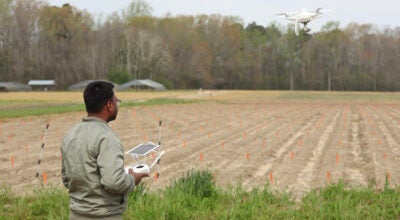Accreditation, graduation requirements change
Published 6:34 pm Thursday, August 9, 2018
The Virginia Board of Education approved state accreditation and graduation requirements for the new school year.
In November 2017, the Board of Education approved the decision to revamp the accreditation standards and lower the number of “verified credits” required to graduate. The graduation requirements will only apply to those entering their freshman year in the fall.
A verified credit is acquired from passing the end-of-course SOL, and students are currently required to earn six verified credits to graduate with a standard diploma, according to the Virginia Department of Education.
The number of verified credits will be reduced to five – English reading, English writing, mathematics, science and history. This reduction will only apply for incoming freshman, and current high school students will have to follow previous verified credit standards.
“While SPS students will still be required to have the same number of credits to graduate, the new graduation guidelines reduce the number of ‘verified’ credits. This essentially reduces the number of standardized assessments students are required to take in high school,” assistant superintendent LaToya Harrison said in an email.
Rather than having a major focus on standardized testing, the Virginia Department of Education will also emphasize the five C’s – critical thinking, creative thinking, communication, collaboration and citizenship skills.
“Additionally, the emphasis on the five C’s and the increased use of performance-based assessments are aligned with our division’s vision that all students will be equipped with the skills, knowledge and attitudes to succeed as productive citizens in a local, national and global society,” Harrison said in an email.
Now students don’t have to take or pass certain SOL tests, and this offers them a chance to explore new academic options not otherwise afforded to them.
“For example, the reduction in the number of verified credits in math allows students the option to take specialized math courses that might be more aligned with their career fields of interest. Also, rather than requiring all students to obtain an industry credential, students have the option of taking honors or advanced courses instead,” Harrison said in an email.
The new accreditation system may also have the potential to affect some of Suffolk’s schools. The new system will begin during the 2018-2019 school year.
Schools will now be rated accredited, accredited with conditions or accreditation denied. A school will only be denied if schools fail to implement state-required improvement plans.
Every school in Suffolk is accredited except Booker T. Washington Elementary School, John F. Kennedy Middle School and Mack Benn Jr. Elementary School. Elephant’s Fork Elementary and King’s Fork Middle are considered partially accredited.
The reason for the change is to help close the achievement gap between student groups and a better view of school quality.
“The rating system is much more comprehensive and takes student growth into account. Therefore, some schools that were previously denied accreditation may be rated accredited or accredited with conditions,” Harrison said in an email. “This is a positive change and gives schools that were previously rated denied accreditation credit for making significant growth with students in a year’s time.”
This new system gives schools a chance to be valued for other things than standardized test scores.
“The new accreditation system is certainly a positive change for our division and for public education in general,” Harrison said. “Additionally, the new accreditation system uses multiple measures to evaluate school effectiveness. We believe this new focus aligns well with our division’s efforts to ensure success for every student in Suffolk Public Schools.”






